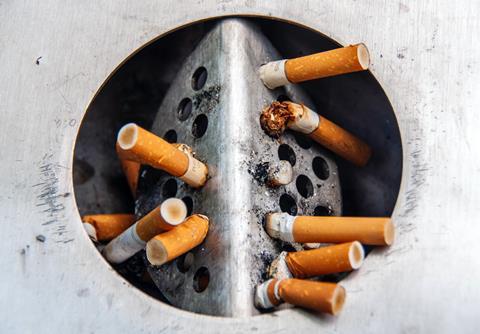[ad_1]

The UK Vaping Industry Association (UKVIA) has cut ties with tobacco manufacturers, vowing it will never again accept funding from them.
The UKVIA said it had ended its relationship with British American Tobacco, Imperial Brands, Japan Tobacco International and Philip Morris International, which were among the founding members of the trade body when it was established in 2016.
The association said the move had been made in response to “the ingrained external misperception” that it is “largely financially supported by tobacco firms”.
It said there was “the impression in some quarters that the association was synonymous with combustible tobacco”. Indeed, global tobacco industry watchdog Stop lists the UKVIA as a tobacco industry ally.
The association – whose director general John Dunne worked for Altria in the US for more than 12 years, until he began working for e-cigarette companies in 2012 – noted that funding from tobacco-owned vaping brands for the past year amounted to less than 4% of its total income. This was down from 13.3% of revenue in 2021.
The UKVIA added that the inclusion of tobacco-owned vaping brands in its membership roster was hobbling it from fully engaging with policymakers, parliamentarians, public health officials and local authorities. The body said it had “underestimated the impact of restrictions” on the involvement of tobacco companies and its ability to meet with “some key stakeholders, particularly those in public health”.
Those restrictions chiefly relate to Article 5.3 of the World Health Organization Framework Convention on Tobacco Control. The article states that policymakers should “protect these policies from commercial and other vested interests of the tobacco industry”.
Most UK government bodies and health authorities cautiously refuse to meet with tobacco linked organisations. Those that must – such as HMRC – insist that any interaction must be essential and extremely limited.
Trading Standards – upon which the vape sector is reliant to stamp out illicit products – is also averse to working with tobacoo companies. Guidance, issued in May to officers by the Chartered Trading Standards Institute, is scathing of cigarette companies and their “efforts to appear ‘socially responsible”, which it says are “designed to distract attention away from the damage caused by the tobacco industry”.
UKVIA sources have said the split was “mostly harmonious” with the tobacco firms understanding the reasoning.
A BAT spokesman said that it had “been a member of the UKVIA since its inception and recognises the valuable role that the association has played in promoting the benefits of vaping”, adding the company “remains committed to transforming our business by reducing the health impact of smoking”.
The University of Bath’s Tobacco Tactics platform noted that since the announced split, VPZ is still listed as a UKVIA member, which it says has “close financial ties to Philip Morris Ltd” having received several loans from the company.
“In representing vaping-only businesses,” the UKVIA said, “many of which are independent firms founded on the back of personal loss of family members as a result of smoking combustible cigarettes, the UKVIA wants to be fully engaged with key stakeholders across the board as we have the same vision, which is to make smoking history.”
[ad_2]
Source link
